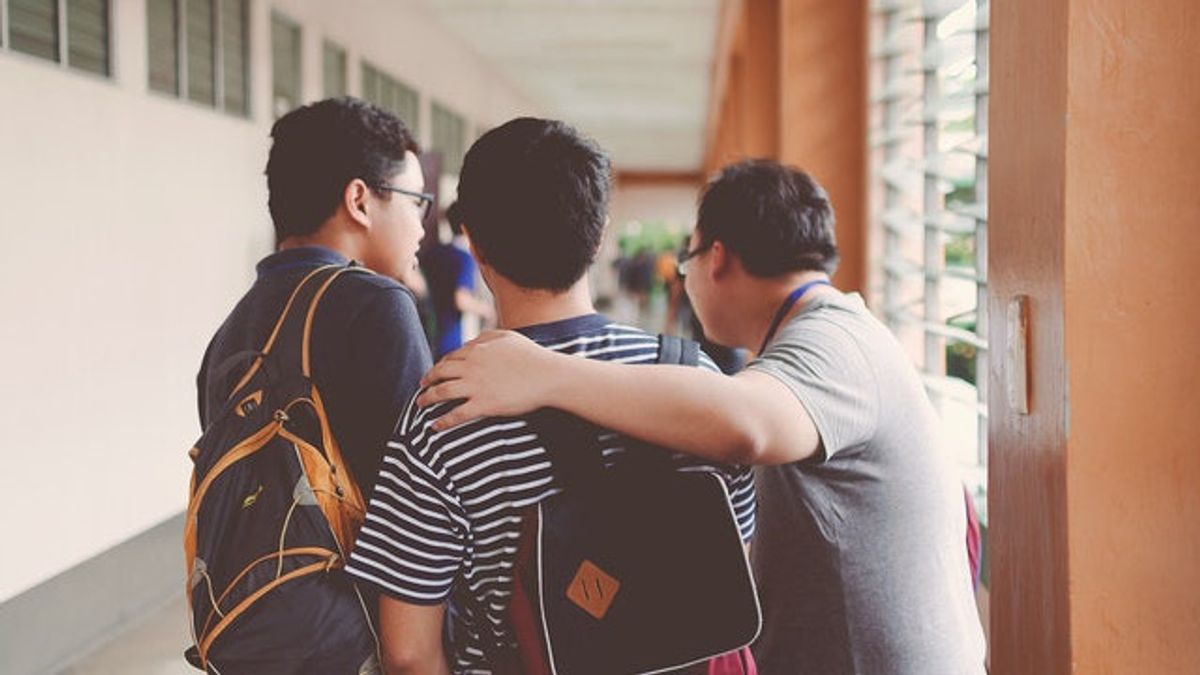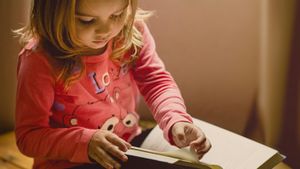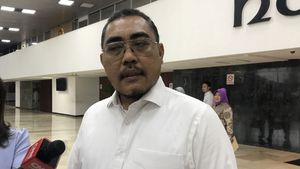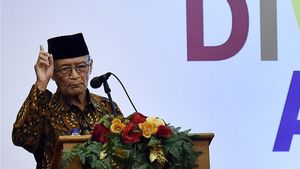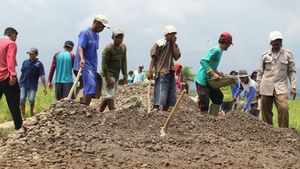JAKARTA - The threat of sexual violence against children and adolescents has recently received serious attention. The Ministry of Education and Culture and Research and Technology explicitly states that there are three major sins in the world of education, namely bullying, sexual violence, and intolerance. This is also corroborated by data from the Ministry of Women's Empowerment and Child Protection in January 2022 that there were 14,517 cases of violence against children and 45.1 percent were sexual violence.
Meanwhile, referring to the PPA SIMFONI (Online Information System for the Protection of Women and Children) as of March 26, 2022, the largest victims based on education came from students of high school age (1727), junior high school (1196), elementary school (1095), PAUD (742) and higher education ( 502). Perpetrators of violence based on relationships come from friends/girlfriends (879), parents (622), family or relatives (332) and teachers (147).
The data exposure is very worrying, especially the threat of sexual violence that occurs is still in the educational environment. In fact, the educational environment represented through the school apparatus should be the party most responsible for protecting children from the threat of sexual violence.
However, in reality, efforts to protect children and adolescents from sexual violence have many challenges. Starting from the low awareness of the threat of sexual violence, what legal actions must be taken to overcome it to preventive measures to prevent sexual violence from occurring in children and adolescents. Most school officials are still unfamiliar with matters related to sexual violence.

In response to this, the Satkaara Berbagi Teacher Community (KGSB) together with the BK Teacher's House and the Jentera Indonesian Law School held a Webinar "Facing the Threat of Sexual Violence in Schools" on Saturday, March 26. The webinar, which was held through the online zoom platform, was attended by KGSB members from PAUD to Universities from 31 provinces in Indonesia and Timor Leste.
The resource persons presented in this webinar were Bivitri Susanti SH, LL.M and Sri Bayuningsih Praptadina SH. Both are academics from the Indonesian Jentera School of Law (STH). In addition, resource persons from educators are Ana Susanti, M.Pd. CEP, CHt., Founder of the BK Teacher's House and Widyaiswara at the Indonesian Ministry of Education and Culture, Research and Technology. This webinar was also attended by Arief T. Surowidjojo., SH, LL.M, Chair of STH Indonesia Jentera and Dr. Marjuki, M.Pd., BK Teacher's House Consultant.

The founder of KGSB, Ruth Andriani said that in order to be able to restore the function of schools as safe and comfortable learning places for children, it is very important for teachers to be able to understand more about sexual violence. Therefore, this Webinar Facing the Threat of Sexual Violence in the School Environment was held to equip teachers to be able to prevent and protect children from sexual violence.
“Schools are ideally a safety net for their students. We take the initiative to protect children's future through teachers. The speakers are also experts in the field of law and handling sexual violence,” he said.

While the Founder of the BK Teacher's House and Widyaiswara at PPPPTK Penjas and BK Kemendikbud, Research and Technology RI, Ana Susanti, M.Pd. CEP, CHt added, The Webinar organized by KGSB this time is a concrete step towards the advancement of Indonesian education, especially in tackling the threat of sexual violence in the school environment.
"It takes a social movement from all parties to collaborate together in dealing with the prevention of sexual violence in the educational environment," said Ana.
In her presentation, a lecturer at the Jentera Indonesian Law College, Bivitri Susanti, SH, LL.M, explained the forms of sexual violence (verbal and nonverbal) as well as the prevention and treatment efforts. Sexual Violence (KS) must be handled seriously, not only from the aspect of punishment. But also the importance of prevention and quick handling and recovery of victims. Furthermore, Bivitri criticized the TPKS (Regarding the Elimination of Sexual Violence) Law.
"Currently there are only 3 types of sexual violence regulated in laws and regulations with a description of the offense and elements that are still limited. The existing KUHAP does not know the victim. The existing laws and regulations do not provide a recovery scheme for women victims of sexual violence. In addition, protection schemes for victims of sexual violence are still very limited,” said Bivitri.
Meanwhile, Sri Bayuningsih Praptadina, SH, a lecturer at the Jentera Indonesian Law College, added that educational institutions need to develop SOPs for preventing and handling KS. This is an effort to provide assistance, protection and recovery for victims of KS as well as to help create schools that are safe, dignified, inclusive, collaborative, equal and non-violent.
“The SOP drafting team in the school environment involves the Principal, BK Teachers, Teacher Representatives and Student Representatives (OSIS, MPK, Extracurricular Institutions). The regulatory framework for KS Prevention and Handling includes the definition, scope, principles of prevention & handling of KS, targets, prevention, handling and handling mechanisms," said Dina.
The holding of the Webinar Facing the Threat of Sexual Violence in the Environment is expected to be a driving force. The goal is to raise the spirits of teachers, educational institutions and other parties in overcoming sexual violence in the school environment for a better future for the nation's next generation.
The English, Chinese, Japanese, Arabic, and French versions are automatically generated by the AI. So there may still be inaccuracies in translating, please always see Indonesian as our main language. (system supported by DigitalSiber.id)
